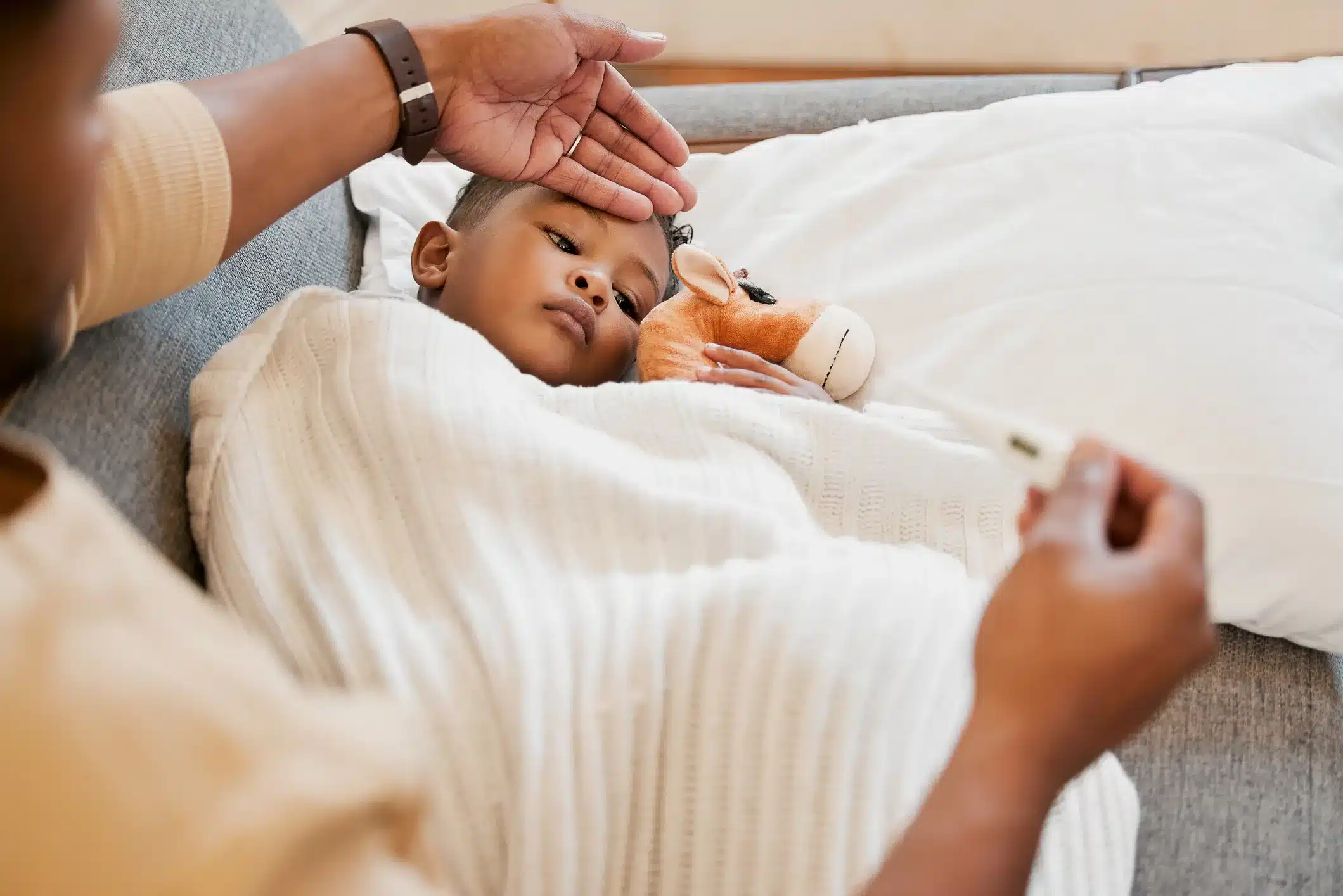Your child is bound to have a fever at some point during cold and flu season, but that doesn’t make it any less scary. Not to mention, it can leave you second guessing yourself and asking questions. Is you child’s fever too high? What’s the right medicine to bring the fever down?
KidsStreet Urgent Care is here with all the answers to those questions and more. First, let’s take a look at what fevers in kids are.
Understanding Fevers in Kids
A fever is just a high temperature. Normal body temperature varies from child to child, but the general standard is between 97°F and 99°F. For most ages, a temperature of 100.4°F or higher constitutes a fever.
A low-grade fever fluctuates between 99.5°F and 100.3°F, and they aren’t typically dangerous for kids older than 3 months old. Even moderate fevers that range from 100.4°F and 102°F don’t usually pose a threat. So, when should you worry?
Fever in Babies
Check with your pediatrician or KidsStreet Urgent Care if your baby under 3 months of age:
- has a rectal temperature of 100.4°F
- has an oral temperature of 102°F or higher for more than 1 day
- has other symptoms like cough or diarrhea
If your baby has a seizure, call 911 or go to the ER immediately.
Check with your pediatrician or KidsStreet Urgent Care if your baby 3 to 6 months of age:
- has a rectal or oral temperature of 100.4°F and is also irritable
- has a rectal temperature of 102°F or higher for more than 1 day
Fever in Kids
Check with your pediatrician or KidsStreet Urgent Care if your child 6 months and older:
- has an oral temperature of 102°F or higher for more than 1 day
- has other symptoms like rash, cough, irritability, or vomiting
- has a temperature of 103°F or higher
Causes of Fevers in Children
Most fevers are caused by infections. It stimulates the immune system, letting the body know to fight the infection. According to KidsHealth, fevers can also be the result of overdressing, immunizations, or teething.
Symptoms of Fevers
A fever can come with its own set of symptoms that you should look out for. Your child may have a fever if:
- They are red or flushed
- Their forehead feels warm
- They are feeling lethargic or fatigued
- They are experiencing chills or sweating
If you see that your child is experiencing any of these symptoms, it’s time to check their temperature.
How Do I Diagnose A Fever?
If you believe your child has a fever, you can quickly diagnose this by taking their temperature at home. The most common way of checking a kid’s temperature is with a digital thermometer to take their oral temperature.
Other ways to check your child’s temperature include:
- Rectal (most accurate and most common in infants)
- Axillary (armpit)
- Temporal (using a special thermometer on the child’s forehead or temples)
- Tympanic (using a thermometer inside the child’s ear)
If your child has a temperature over 104°F, visit the emergency room or call 911 immediately. This is considered a dangerous temperature for kids.
Treating A Child’s Fever
A high temperature in kids can usually be treated with fever-reducing medications. Just make sure you use the right dosage for your child’s age.
There are safe amounts of ibuprofen dosage for kids and tylenol dosage for kids depending on their weight and age.
Additionally, there are other methods to helping your child feel better such as:
- Ensure they get plenty of rest
- Make sure they drink plenty of fluids to avoid dehydration
- Have them wear lightweight clothing and avoid heavy blankets
If these methods don’t lower their temperature, it’s time to seek some medical assistance. Remember: a fever is a sign that your body is fighting an infection, so it’s a symptom of something bigger.
Turn To KidsStreet Urgent Care
KidsStreet Urgent Care can help with children’s fever and more! To visit one of our kid-centric clinics, register online. You will be able to wait from your home or vehicle until we are ready to see you.
Walk-ins are always welcome, but please be aware that walk-ins may experience longer in-clinic wait times. All walk-in patients are added to the same queue as those who register online.

